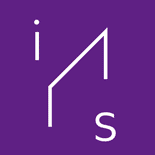中文|English
The Third Annual Conference of Network Society: Intelligent Urban Fabric
Conference Location: Academic Hall, China Academy of Art,
Nanshan Campus, 218 NanShan Road, Hangzhou
Workshop Time: 2018/11/23
Workshop location: Room 405, Building 4, China Academy of Art,
Enroll Link
Convener: Huang Sunquan, Li Shihchieh
Academic committee: Gao Shiming, Guan Huaibin, Huang Sunquan, Li Shihchieh, Lu Xinhua, Yuk Hui
Institute of Cultural Innovation and Visual Communication, China Academy of Art
The Institute for Collaborative Innovation in Chinese Visual Studies
The Institute of Network Society (INS), School of Inter-Media Art (SIMA) of China Academy of Art (CAA)
Panel Introduction
Panel 1: Governance for common
The guideline of urban planning is planning for the common good and the technics of smart city highly boost the efficiency and means of solving urban problems. However, the ideology of urban planning is being instrumentalized. Some emerging and undefined social dynamics are covered under this function-oriented tendency. Centralization of data and non-transparency of algorithm are been ignored; omnipresent surveillance also brings up new ethical problems. In this panel, we invite CTOs form city governments and specialists of smart city around the world to share their ideas and practices with us. Together we face the challenges and opportunities coming with smart city, constructing a new common between public and private region in digital age.
Host: Huang Sunquan
Panelist: Wang Jian, Seb Chan, Mikio Wakabayashi
Panel 2: Smart Citizen
Smart citizen or smart city? People is the key to realize smart city and the who benefits from smart city. The current dilemma of smart city falls right on the dislocation between top-down digital governance and hardware development, and the actual need of people living in the city. Citizens’ happiness becomes merely an evaluable index of efficiency. In stead of reaching the technological singularity, the progress of technics should combine the power of government and civil society to improve the long-term development of the city as a whole. How to empower citizens the right to data with technics? How to further fix the lack of right to express collective opinions and public will of the society under today’s bureaucracy? How to reveal those uncomputable and invaluable interaction among humans? In this panel, we would like to propose responsible, inclusive and democratic technics, making the city a collective work of its citizens.
Host: Li Shihchieh
Panelist: Michael LaFond, Zheng Dongbo, Jaromil
Panel 3: Intelligent Organs
Both reclamation of infrastructures and development of civil technology are the new organs and weapons of a city. We use intelligent organs as a probe of smart city to find the materiality and possibility of reforming value identity. Enterprises, organizations and NGOs are invited to share actual cases in this panel, showing us how organs in different functions and scales cooperate together. To citizens, the more one understands about the intelligent organs that turn even hidden, the more one can sense the probable consequence brought by new technologies. The imagination of alternative technics/organs also help us to connect organs and minds and catalyze the cycle system of human-urban ecology.
Host: Zhang Shenglin
Panelist: Chris Julien, Rob van Kranenburg, Numada Muneyoshi
Panel 4: Restructuring Geo-Politics
Traditional spaces and geo-politics are gradually replaced by new planetary computing and regional governance: General Data Protection Regulation(GDPR) fights against big companies monopolizing social media; Apple moves its iCloud operation and data to Guizhou, China. Political entities and networking technics interweave governing groups into multi-form of governments. What kinds of political economics can be applied to analyze these multi-form of governments? What spaces are being produced after the surveillance conflicts among authorities? Is it possible that urbanization and de-urbanization happen simultaneously? Is the relation between city and country a continuum fallacy, or the last mile of real subsumption of capitalism? We expect to bring in discussion from different viewpoints in panel.
Host: Gao Chu
Panelist: Michael LaFond, Zheng Dongbo, Jaromil
Workshop: DOWSE/ SWAPI
Organizer: Dyne.org / Rob van Kranenburg, Jaromil, Federico Bonelli, Aspasia Beneti
Schedule
[table id=8 /]

